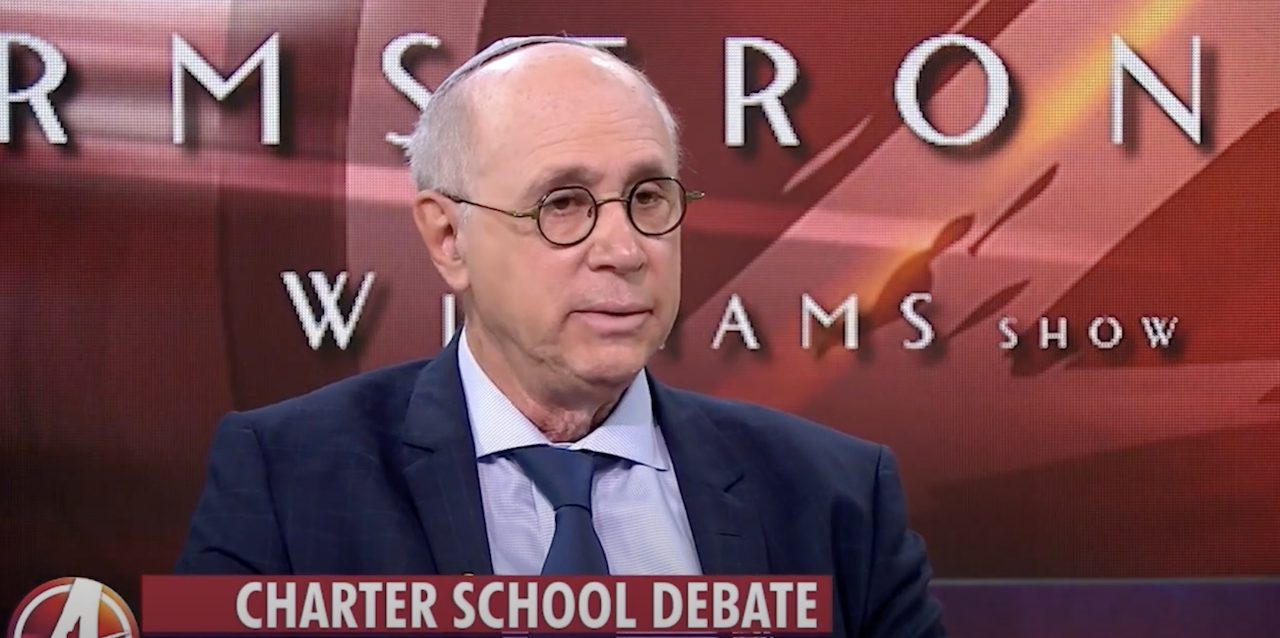Trebek, Erekat and Sacks: Three Notable Passings in a Week
Avraham avvenu, Abraham is often considered and referred to as the father of the three great monotheistic religions: Judaism, along with the other two religions whose origins are in Judaism: Christianity and Islam. We read in this week’s Torah reading about his death, as well as the death of his wife Sarah. And this past week, three notable famous individuals, a prominent Christian, Moslem and Jew who made a mark on society passed away: Alex Trebek, Saeb Erekat and Rabbi Jonathan Sacks.
The tributes to Jeopardy host Alex Trebek have praised him for his kindness and decency. He appears deserving of the praise. Several articles in the Jewish press commented on what they called “Jewish moments or connections to Trebek or Jeopardy.” The show celebrated knowledge of often obscure facts, some of which occasionally had a Jewish angle – such as this answer: 1995 winner “Mazel” takes its title from the word for luck in this language written in Hebrew letters. (The correct response is: “What is Yiddish?”)
Rabbi Joyce Newmark who competed on two episodes in May of 2011, winning $29,200 the first night and $2,000 the second, commented about Trebek, “He is very kind. He wrote about it in his book. He said that when somebody makes a mistake he tries to make them feel better. He’s trying to make people enjoy being there. Viewers get that. The show is not mean, and there are so many shows on TV now in which people are just mean. The other thing is that Alex does not come off as a (know-it-all) or a comedian. He was the kind of person who competes on “Jeopardy!” He loved odd facts and read books and appreciated “knowledge lishma” (for its own sake). He just loved learning. The whole experience – you came away from it, and even though there is money at stake, what you really want is to keep playing. We are all together having this amazing experience…”
It is often said that it is not appropriate to disparage or say anything negative about the dead. That attitude has certainly prevailed in the stories in most mainstream western media about Saeb Erekat, the Palestinian spokesman and negotiator who died, despite efforts of the staff of Hadassah Hospital to save him.
CNN called him a “veteran Palestinian negotiator, which he certainly was.” Sky News, as well as most outlets transformed Erekat into a genuine moderate, describing him as “calling for dialogue and compromise.” Even the Jewish paper, the Forward got in on the act with a column by Muhammad Shehada which said, “Saeb, should be remembered as a faithful husband and a caring father of four. He was a loving grandfather, a decent Palestinian and a fervent believer in peace who never pointed a gun at anyone or wished harm unto others.”
While it is true that he represented Palestinians in the peace process, these fawning pieces do not tell the full story and omit reference to his obfuscation and responsibility for rejecting generous Israeli offers to create the state that he, according to his eulogists, so poetically longed for. Jodi Roduren, editor of the Forward wrote a few weeks ago of his elusive dream – prompting me to write a nationally published response where I reminded people that as recently as 2019 he said that any Palestinian involved in “normalization with Israel” is guilty of putting a “knife in the back” of Palestinians.
Unfortunately, Erekat consistently rejected meaningful compromise which would have resulted in the creation of a Palestinian state. And while it may be true that he never pointed a gun at anyone, he praised and celebrated terrorist acts that killed Jews and was part of the system that gave monetary rewards to the families of those who killed Jews.
Because of his accessibility and appeal to western journalists he got away with libeling and defaming Israel whenever he could.
To cite just one example, when Palestinian suicide bombers were repeatedly striking Israeli buses, cafes, busy streets, and hotels, during the Second Intifada Israel launched a military operation to stop the wave of deadly attacks. The city of Jenin had become a base for terrorism harboring forces from Islamic Jihad, Al-Aqsa Martyrs Brigades, and Hamas. Israel carried out an operation there, in a manner which sought to minimize civilian non-combatant casualties, even though it meant increased risk to the lives of Israeli soldiers. Erekat appeared on numerous television networks around the world and used his platform to spread the lie that Israel had committed a massacre, saying 523 Palestinians were killed. His lie worked and Israel was roundly condemned, when in reality, 52 Palestinians were killed, of which 48 were terrorists.
The third prominent individual to pass away this week was Rabbi Lord Jonathan Sacks, an erudite, extraordinary teacher, speaker, writer, philosopher who combined his knowledge of modern science, psychology, sociology, as well as literature, Shakespeare, Plato and Aristotle with his encyclopedic understanding of Bible, Talmud and Jewish sources. He debated secularists, humanists and atheists, all without rancor or antagonism, to make the case for religion, and particularly for Judaism.
Like the great sage Maimonides he combined his knowledge of science and modernity to rationally explain Judaism to a skeptical generation. His passionate advocacy and defense of Judaism and Israel was grounded in respect for other religious traditions. And so, like Maimonides, he earned the respect and admiration of Christians and Moslems as well as Jews, upon whom he had a tremendous impact and influence.
He also had a delightful sense of humor, and never took himself too seriously, quoting Oscar Wilde not too long ago, “With age comes wisdom, but sometimes age comes alone.”
If you never read anything by Rabbi Sacks, or if you never heard him speak, I urge you after Shabbat, go to his website. Better yet, buy and read one of his books. I have several by him, including a couple about the weekly Torah portion, which I refer to and read almost every week when studying the parasha. Anything you read or hear by him will be inspiring. His insights and explanations are uniquely fascinating. And you will understand why the accolades and tributes have poured in from around the world for England’s former chief rabbi.
He taught that each of us must act morally, by taking responsibility for our actions. He wrote, “There is no hand of heaven – no physiological, genetic, psychological or Providential compulsion – that forces us to act one way rather than another.”
I conclude today by citing by way of example something he wrote about this week’s Torah portion referring to the passing of Abraham, but which could apply to him as well. “The theme of this week’s parasha — indeed, of the Book of Genesis in general — is the transmission of the Covenant from one generation to the next, and the related issue of ensuring succession. Succession is indeed Abraham’s goal. It is why he sends his servant to bring back a wife for his son Isaac from Abraham’s kin in Aram, in Mesopotamia.”
Rabbi Sacks explains that Abraham does not just depend on God to guarantee fulfillment of the promises he was given. Faith, he teaches, requires him to act upon what he has been promised. Human actions are necessary to fulfill Divine promises. “Faith,” he teaches, “does not mean passivity. It means the courage to act and never be deterred.”
Rabbi Sacks notes that today’s haftarah reading, the first chapter of the Book of Kings, is also all about succession, and at the end of his commentary on Chayei Sarah, Rabbi Sacks wrote: “Leaders see the destination, begin the journey, and leave behind them those who will continue it. That is enough to endow a life with immortality.” A fitting epitaph for a humble giant who left a lasting legacy and impression on our world.
Rabbi Stuart Weinblatt
November 14, 2020





